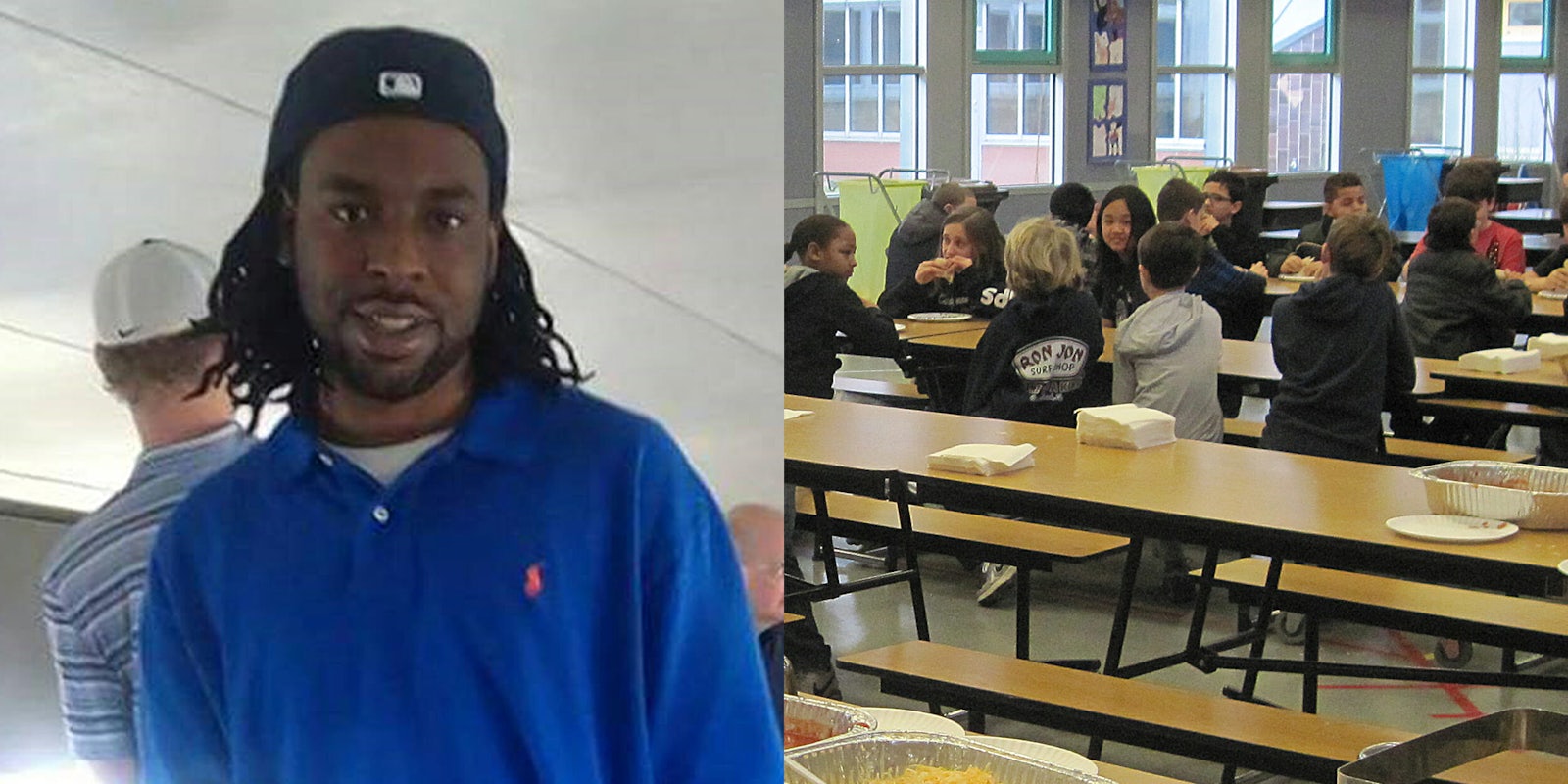Opinion
The memory of Philando Castile lives on. In 2016, the Minnesota school nutrition worker was tragically killed by a police officer during a routine traffic stop, becoming an icon of the Black Lives Matter movement. Following his death, there was an outpouring of support for Castile, who was remembered as a friend to students and a champion of school lunch programs. Students said that whenever someone couldn’t afford lunch, Castile would open his wallet.
A fund has now been set up in his name aimed at erasing school lunch debts throughout St. Paul. So far, the organization, Philando Feeds the Children, has paid off the school lunch debt of every student at J.J. Hill Montessori Magnet School where he worked and over 50 other area schools. The project, started by Metropolitan State University students, has raised $148,000 to erase school lunch debt.
It is this activism around Castile’s death that has reinvigorated discussion of free school lunches around the country—and could perhaps result in lunch debt forgiveness for students nationwide.
Many progressives believe that school lunch should be free for all students, or at least that the debt of needy students should be automatically forgiven. However, more conservative states and municipalities build up debt for parents who are above specified poverty limits but still can’t afford to pay for school lunch. In some cases, when the debt gets to a certain point, kids are given inferior lunches or punished for not being able to afford their food.
Since Castile’s death, a number of people and organizations have increased awareness around the issue and launched fundraising campaigns aimed at fighting lunch debt. In late 2016, political writer and podcast host Ashley C. Ford leveraged her massive social media following to raise money to help erase student lunch debt. With one tweet, she inspired giving across the country, resulting in tens of thousands of dollars of lunch debt forgiveness donations. Ford’s work birthed a number of localized movements that are still going strong over a year later.
https://twitter.com/iSmashFizzle/status/806174214747291649
This year, Seattle parent Jeffrey Lew launched a crowdfunding effort that resulted in $40,000 of lunch debt erased in area public schools. He told NBC News that he was inspired by the ongoing conversation around school lunch that has grown in recent years. Following his initial success, Lew says he wants to pay off lunch debt for all of Washington state.
Organizations that existed prior to the activism in Castile’s memory are also seeing a boost from recent focus on the issue. Houston based activist Kenny Thompson launched Feed the Future Forward, a non-profit based at wiping out school lunch debt in 2014. By 2016, his efforts had expanded to include over 140 schools and 150,000 students.
This wave of philanthropy has even led to legislation: “Lunch shaming,” the singling out or punishing kids who can’t afford school lunch, has been outlawed in some states. The most egregious examples of lunch shaming include a student having “I need lunch money” stamped on their arm or being forced to clean tables to pay for their lunch. Last year, New Mexico passed a bill banning lunch shaming in the state. By June, Texas had passed a similar bill, and by October, California followed suit. In addition to banning lunch shaming, the California bill requires that students whose parents have accrued lunch debt receive the same hot lunch every other student receives.
While these bills provide welcome relief from draconian laws punishing our nation’s children, many feel they don’t go far enough. Laws against lunch shaming combined with these charitable efforts still work within a system in which children have to pay for their school lunch and become debtors at a young age, not to mention are stigmatized for their parents’ financial status.
The movement to erase lunch debt has led to the question of whether we should be charging for school lunch at all. While there are no state laws to this effect as of yet, major metropolitan areas have led the charge to make school lunch totally free. This school year, New York joined Boston, Chicago, Detroit, and Dallas by committing to provide lunch for free to every public school student. While no national “school lunch for all” legislation has gotten off the ground yet, this has led to op-eds on the topic from various sources including a number of the nation’s prominent op-ed pages and think tanks.
Meanwhile, the Trump administration has already indicated that they are interested in cutting school lunch programs. Not only have some White House officials said that they want to reduce the number of students eligible for free or reduced lunch, but Secretary of Agriculture Sonny Perdue has also announced plans to roll back Obama-era nutritional standards. However, many close to the issue feel that stories like those around Castile and Ford have helped bolster support for programs and cuts may be unlikely.
Anti-lunch-shaming bills and free-lunch legislation will likely continue to crop up in liberal strongholds, but the question remains whether a national free lunch bill could be on the horizon. As the movement grows, springboarded by the memory of Castile, an America where no student leaves school hungry could become a reality someday soon.


